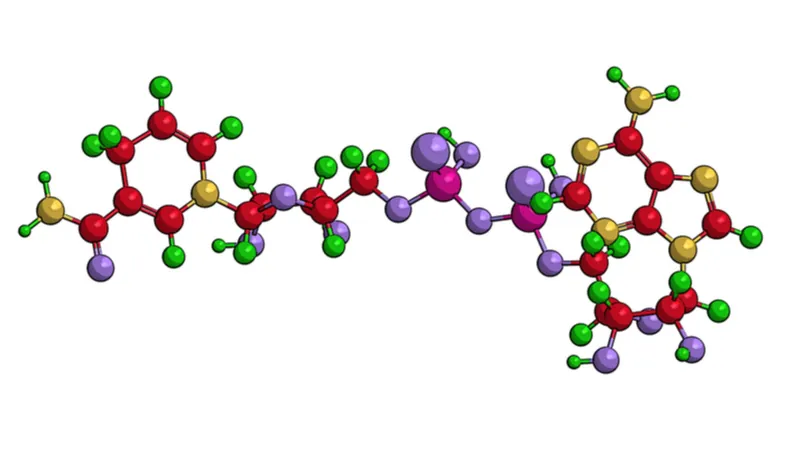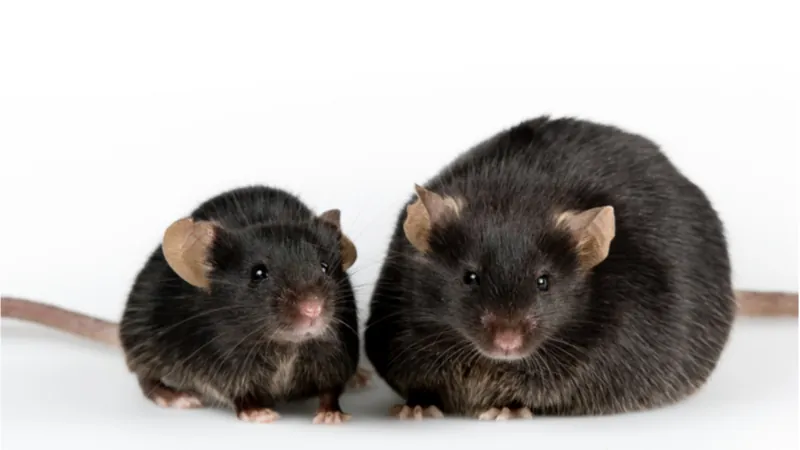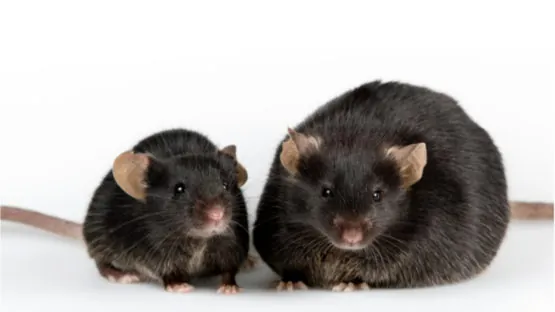Researchers have discovered a chemical pathway that alleviates many harmful consequences of obesity while having little effect on obesity itself [1].
Obesity is bad for your lifespan. This is one of the fundamental truths of longevity science. Obesity drastically increases our susceptibility to cardiovascular diseases, type 2 diabetes, cancer, and other morbidities. It promotes inflammaging, the age-related chronic inflammation that causes significant, systemic harm.
The obesity epidemic hampers life expectancy [2] and healthspan [3] around the world. One of the ways in which obesity threatens our health is through metabolic syndrome – a cluster of conditions that includes increased blood pressure, high blood sugar, and abnormal cholesterol levels.
However, not all obese people develop metabolic dysfunction. Some individuals seem to be protected from the deleterious effects of obesity, and the reason for this is not well understood. This intriguing new research appears to have something to do with it.
Dealing with excess nutrients
Excessive nutrient supply induces bodily stress. The body has numerous mechanisms for coping with stress, but if a person gains weight and feels worse as a result, this can only mean that these coping mechanisms are overwhelmed. One of the known stress-resisting pathways includes the transcription factor Nrf2
The protein called Keap1 keeps a lid on Nrf2 activation. By silencing the Keap1-producing gene in mice, the researchers were able to increase Nrf2 levels. Two groups of mice, one with Nrf2 overexpressed and one wild-type, were each divided into two subgroups, one of which was fed a high-fat diet (HFD) while the other retained a regular diet. The researchers observed that the genetically modified mice showed improved insulin sensitivity and had a significantly lower percentage of body fat than their littermate controls.
However, Keap1 affects more than 200 genes, and not all these effects are beneficial. The genetically modified mice also showed elevated levels of NQO1, a gene that is one of the known downstream targets of Nfr2. NQO1 is, by itself, known to protect against diabetes and metabolic syndrome. This led the researchers to believe that many, if not all, of the protective effects achieved by Keap1 deletion were due to NQO1 overexpression.
Getting fat without the consequences
The scientists again created two groups of mice – one with the NQO1 gene overexpessed and one wild-type – divided into two subgroups each. The results were intriguing. While HFD-fed NQO1-transgenic mice gained excess weight on par with their overfed wild-type siblings, they suffered less from the deleterious effects of overeating. Plainly speaking, they overate and got fat but did not pay the usual price for it. This included physical abilities: coordination and treadmill endurance, while significantly reduced in overfed wild-type mice, were largely preserved in NQO1-transgenic mice fed the same diet.
Overexpression of NQO1 seemed to greatly increase the insulin sensitivity of mice, but there was more to it, as much of the havoc wreaked by obesity is due to the chronic inflammation that it causes. The mechanism includes infiltration of fat tissue by macrophages – immune cells that promote inflammation. NQO1-transgenic mice suffered from this infiltration much less than wild-type mice did. The fat was still there, but it was less inflamed due to the diminished presence of macrophages.
Interestingly, although elevated NQO1 presence was detected in several tissues but not in the liver, the transgenic mice seemed to be protected from hepatic steatosis (fatty liver), one of the usual hallmarks of obesity. NQO1 overexpression also improved lipid metabolism by increasing the availability of lipids widely considered beneficial, such as polyunsaturated fats.
The results of the study strongly suggest that NQO1 overexpression works by improving not just insulin sensitivity but also glucose, lipid, and NAD+ metabolism, and these effects are largely achieved by attenuation of mTOR signaling pathways [4]. This resembles the action of rapamycin, one of the most popular and well-researched compounds in the longevity field.

Read More
Compared to WT, HFD-fed NQO1-Tg mice exhibit enhanced activity of main pathways of glucose and NAD+ metabolism in liver, skeletal muscle, and adipose tissue of mice subjected to a 24-h fasting/3-h refeeding protocol. These observations are compatible with higher insulin sensitivity, improved whole-body glucose homeostasis, less oxidative stress, and higher sirtuin activity.
Conclusion
This research has uncovered a potential mechanism for alleviating the harmful effects of obesity, such as insulin resistance, chronic inflammation, and fatty liver. Considering how many familiar pathways are involved, this may be a sign that this line of longevity research is on the right track.
Literature
[1] Di Francesco, A., Choi, Y., Bernier, M., Zhang, Y., Diaz-Ruiz, A., Aon, M. A., … & Pearson, K. J. (2020). NQO1 protects obese mice through improvements in glucose and lipid metabolism. npj Aging and Mechanisms of Disease, 6(1), 1-18.
[2] Vidra, N., Trias-Llimós, S., & Janssen, F. (2019). Impact of obesity on life expectancy among different European countries: secondary analysis of population-level data over the 1975–2012 period. BMJ open, 9(7), e028086.
[3] Walls, H. L., Backholer, K., Proietto, J., & McNeil, J. J. (2012). Obesity and trends in life expectancy. Journal of obesity, 2012.
[4] Lamming, D. W. (2016). Inhibition of the mechanistic target of rapamycin (mTOR)–rapamycin and beyond. Cold Spring Harbor perspectives in medicine, 6(5), a025924.





